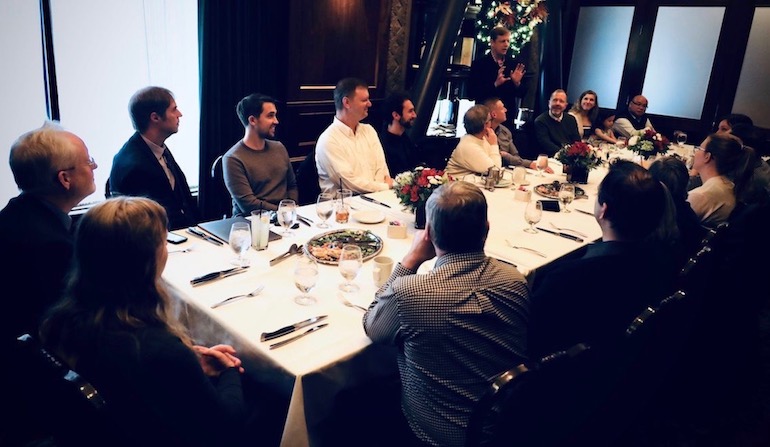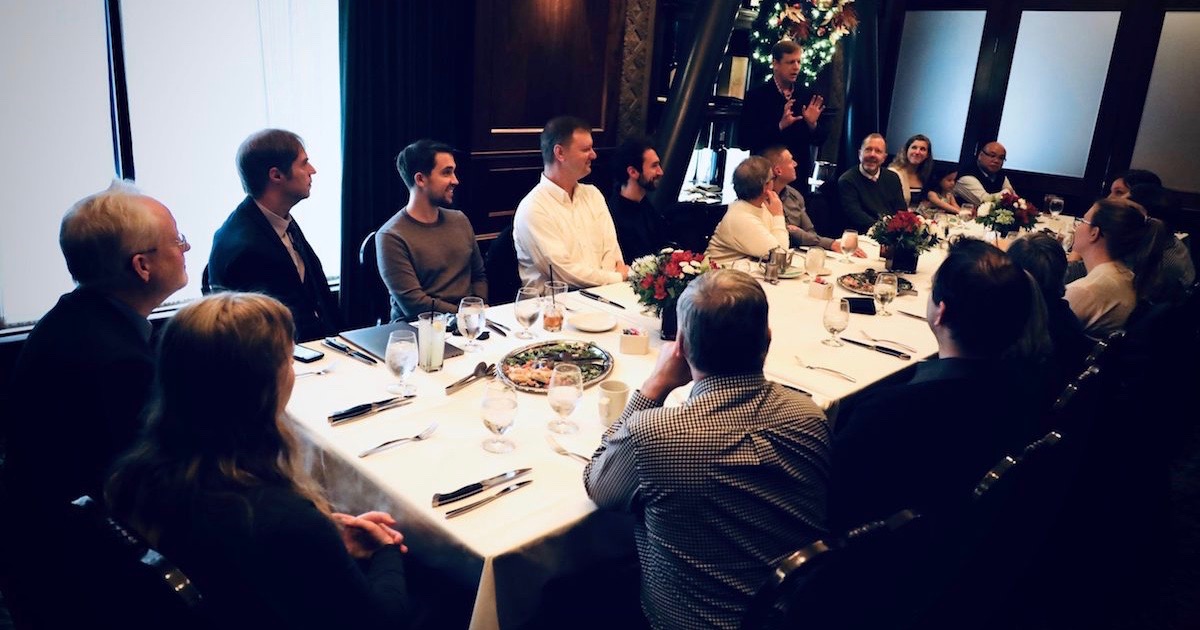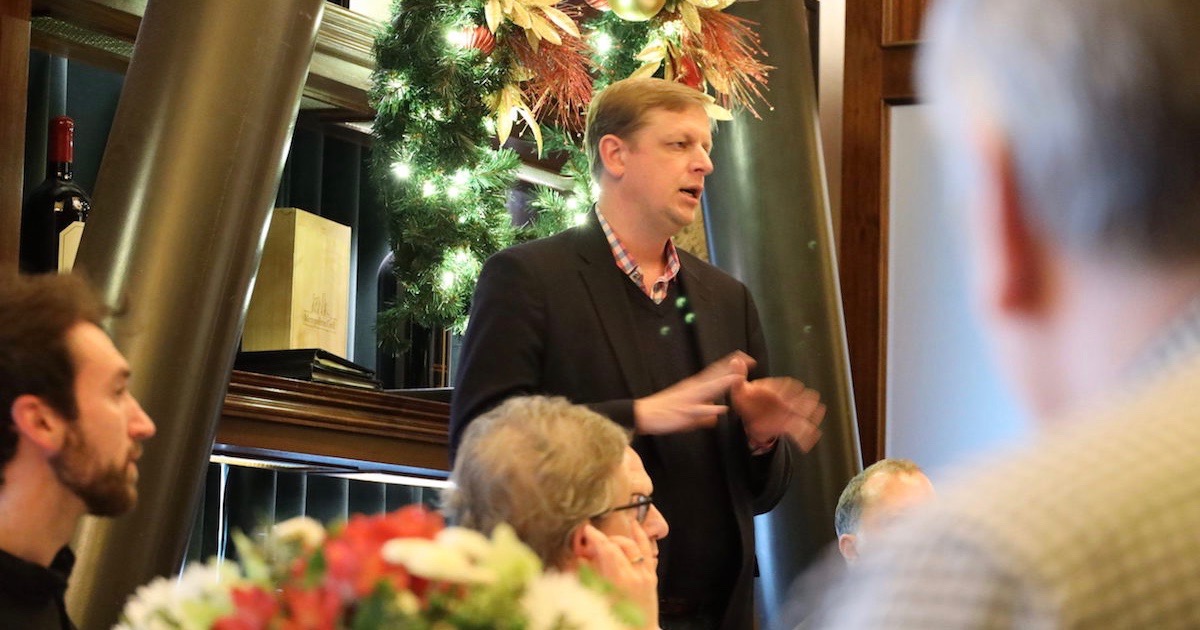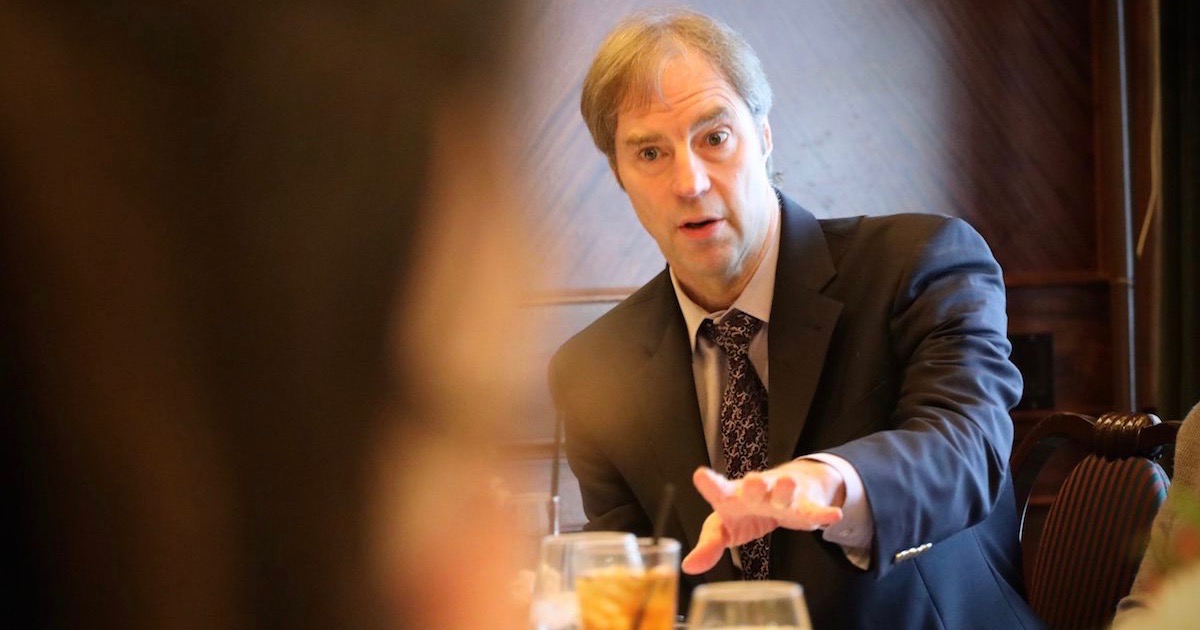 Intelligent Design
Intelligent Design
Breaches in the Wall: Reviewing a Year in the Life of Intelligent Design


Editor’s note: At the year’s end, please take a moment now to support the work of the Center for Science & Culture! As we advance the case for intelligent design, in science and in the culture, everything we do depends on you.
The Seattle-based staff of Discovery Institute and the Center for Science & Culture just celebrated our Christmas luncheon where we had a chance to reflect on the breakthroughs we saw in 2019. I cannot help but feel as if we are at a moment in history similar to the day the Berlin Wall fell. That day represented the collapse of the barrier separating East and West Germany. In the same way, the philosophical wall separating scientific inquiry from empirical reality is starting to crumble. Increasingly, scientists are realizing, or gaining the courage to publicly acknowledge, that the evidence challenging scientific materialism can no longer be ignored. In addition, the efforts to censor this message are faltering, so more members of the public are hearing the truth.
The Scientific Advances
The advances in science over the past few years have been dramatic, both in demonstrating the limitations of evolutionary processes and in elucidating the evidence of design in biological systems. Starting off 2019, Michael Behe published the book Darwin Devolves: The New Science About DNA that Challenges Evolution. The book demonstrates how the mutations that most often spread throughout populations degrade or disable genes. In other words, evolution primarily removes genetic information, so its transformative potential is limited to relatively minor changes to existing traits. The strength of Behe’s case has been affirmed by the fact that none of his critics directly responded to his core arguments. Respondents primarily misrepresented the book’s content, recycled disinformation against Behe, and misinterpreted the scientific literature (here, here, and here).
In addition, vast amounts of evidence indicate that the laws of nature and countless systems in life were planned in advance by an intelligent agent to meet predetermined goals. Chemist Marcos Eberlin compiled a sample of this data in his book Foresight: How the Chemistry of Life Reveals Planning and Purpose. The book’s content is so compelling that it was endorsed by three Nobel laureates. In addition, Eberlin launched an intelligent design academic society in Brazil that has close to 2,000 members. He regularly speaks at universities to audiences in the thousands. Young academics are flocking to join the intelligent design community, so they can gain the intellectual freedom to follow the evidence where it leads.

Steve Buri, president of Discovery Institute.
The International Reach
The international reach of intelligent design has also continued to grow. I had the privilege of speaking for a conference in Spain on intelligent design and for a seminar on ID in Hong Kong. I also participated in the first conference of the new German-speaking scientific society dedicated to the study of design in nature. At the conference I lectured on how research on the stability effects of mutations to proteins confirm and generalize Doug Axe’s research on the extreme rarity of proteins. In attendance was one of the world’s leading evolutionary theorists, and he acknowledged that my analysis was accurate.
Another personal highlight was participating in an ID conference in Israel that was attended by several Israeli scientists and other delegates from around the world. The Israeli participants were so excited about the lectures and discussions that they wish to play a more prominent role in future events. I particularly enjoyed discussing with some of the Orthodox Jewish attendees what implications the design inference had within their theological tradition.
The Changing Tide
This past year, we have also seen a change in the tide for the design debate. Many top academics have expressed support for our work, but few have felt the freedom to openly state their views. That fear may be starting to subside. This past spring, the Claremont Review of Books published an article by David Gelernter, “Giving Up Darwin: A Fond Farewell to a Brilliant and Beautiful Theory,” reviewing books by Discovery Institute’s Stephen Meyer, David Berlinski, and David Klinghoffer. Gelernter is a world-class computer science professor at Yale, and a lucid writer, so his essay gained widespread attention. For instance, the journal First Things, a premier publication on faith and culture, published an article by George Weigel about Gelernter’s defection and how his arguments “may help a few Nones out of the materialist bogs in which they’re stuck.”
Some attempted to dismiss Gelernter by stating that he is not a biologist, so he is unqualified to critique evolution. This criticism is ironic considering that the grand evolutionary narratives (e.g., fish to amphibian) have very little to do with biology. They are typically vague stories that consistently collapse when the biological details are taken into consideration (here, here). In reality, the key issue is the plausibility of undirected processes generating large amounts of information. And on this topic, Gelernter can speak with great authority. He clearly articulated how the information challenge undermines evolution’s theoretical foundation.
Equally important, design proponents were given the opportunity to respond to the disinformation campaign, which naturally followed. Jerry Coyne wrote an article for Quillette, “David Gelernter is Wrong About Ditching Darwin,” that grossly misrepresented the science. Such a response was not surprising. What was unusual was that the editors published a detailed response to Coyne by our scientists (Günter Bechly, David Berlinski, and myself). Our article exposed Coyne’s errors and in so doing further demonstrated the strength of Gelernter’s thesis. If this trend continues, critics will no long have such free rein to take liberties with the facts.
Equally encouraging, our message has reached unprecedented numbers of people. Steve Meyer’s video on PragerU has reached over 3.5 million viewers. The Gelernter, Meyer, and Berlinski interview with Peter Robinson of the Hoover Institution was viewed by over a million people. Meyer’s interview with Ben Shapiro received over 2 million views. And, the Science Uprising film series has been seen by over a million people. Many more opportunities are presenting themselves to help spread the message that life is not an unintended accident, but it was designed for a purpose.

Stephen Meyer, director of the Center for Science & Culture.
Our greatest challenge has been the misinformation that critics have spread against us. The strategy of disinformation may have proved somewhat effective in the short term, but it will prove increasingly ineffective in the long term. The more people actually hear our arguments, the more they realize how they have been misled by the critics, and the more they want to learn the truth.
The Coming Year
Next year holds equally great promise for spreading the message and strengthening the design arguments. We will host more conferences, create new videos, and push forward additional research. For instance, James Tour exposed this past year the fraudulent nature of the evidence commonly presented to the public that life arose through undirected processes. I will expand upon that theme by demonstrating how research in thermodynamics places the quest for a purely undirected origin of life very nearly in the same category as alchemy and the search for a perpetual motion machine.
In addition, you will learn how biologists and engineers have come together to better understand the higher-level organization of living systems. Their research has forced them to unconsciously abandon evolutionary assumptions and replace them with design-based assumptions, language, and models. In other words, the intelligent design framework is displacing evolution at an instrumental level even though biologists still resist design at a philosophical level. Our researchers hope to help lead the way in this new frontier.
Photo at the top: Discovery Institute 2019 Christmas lunch; all photos by Nathan Jacobson.

